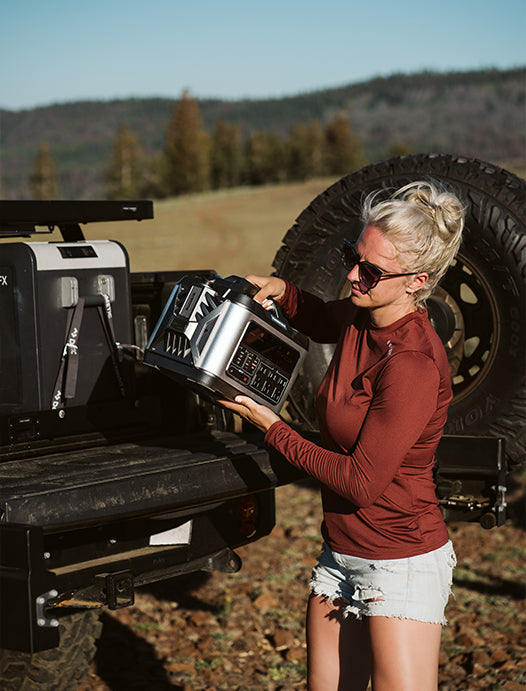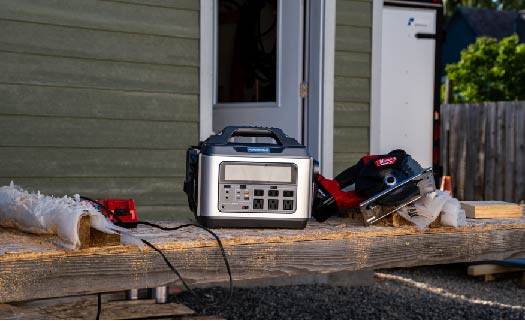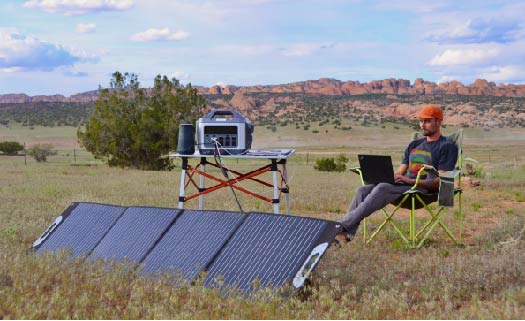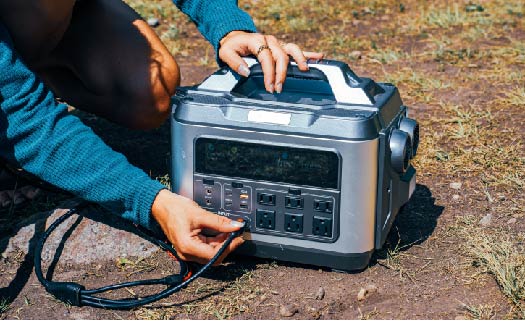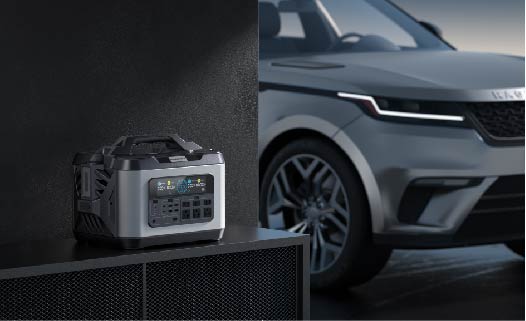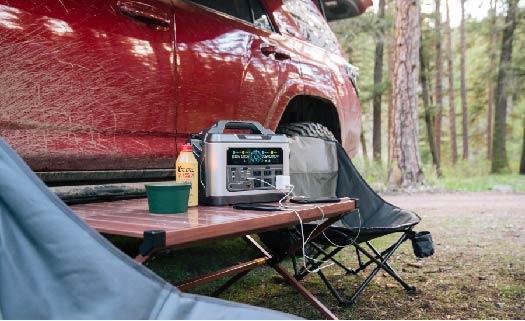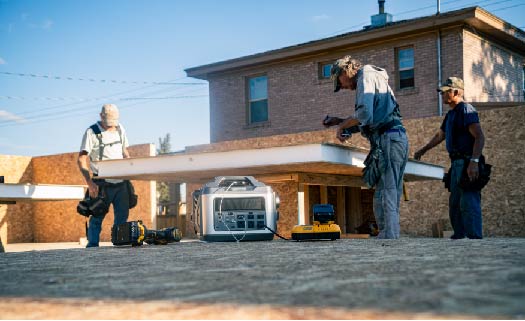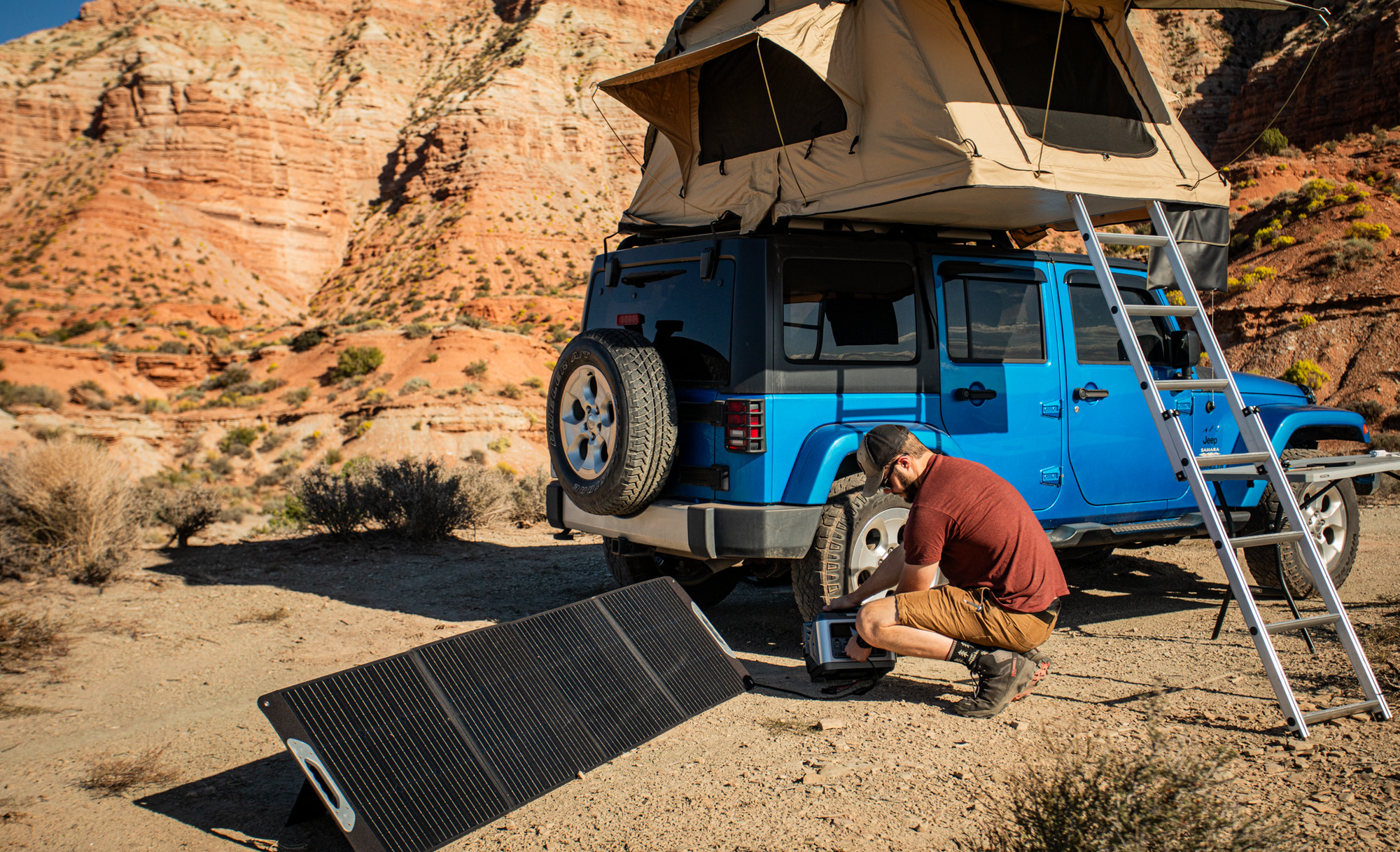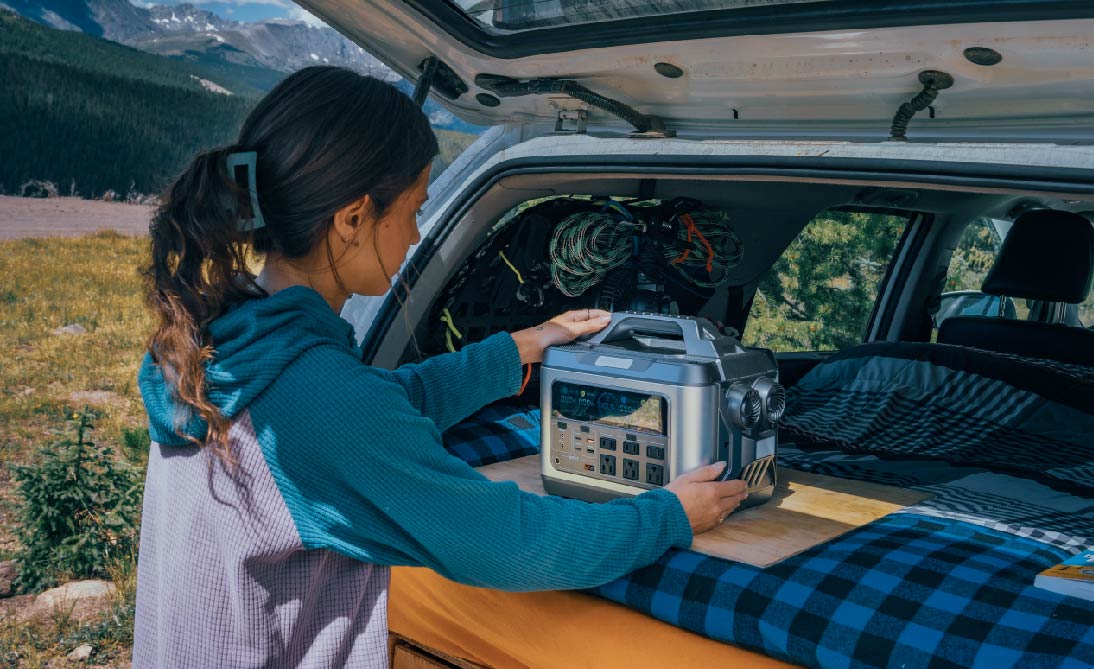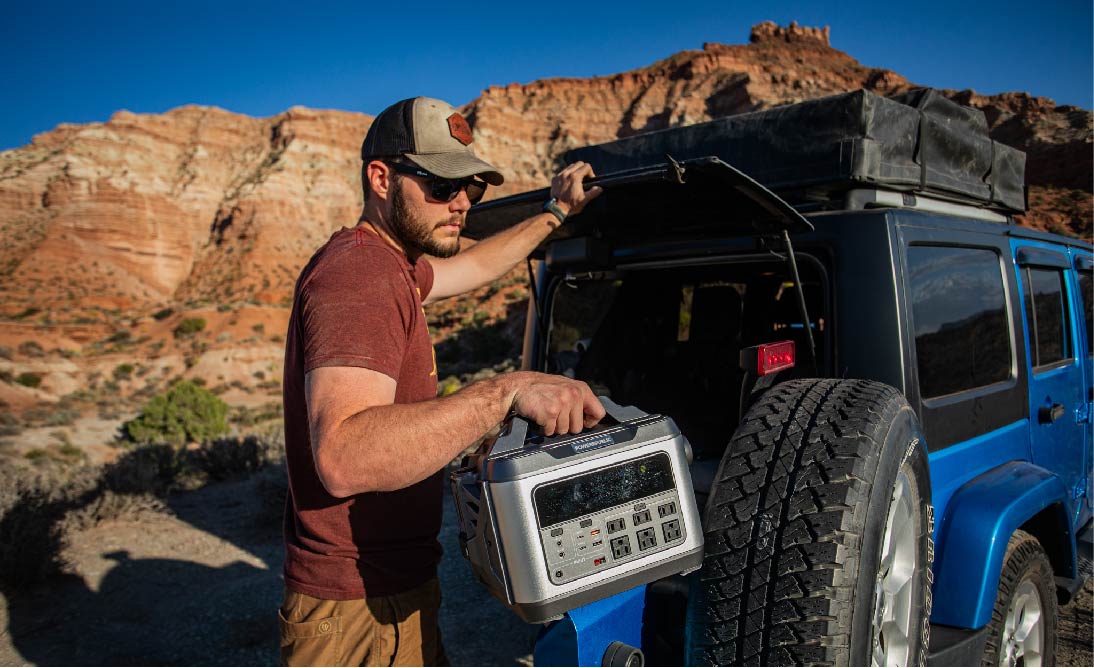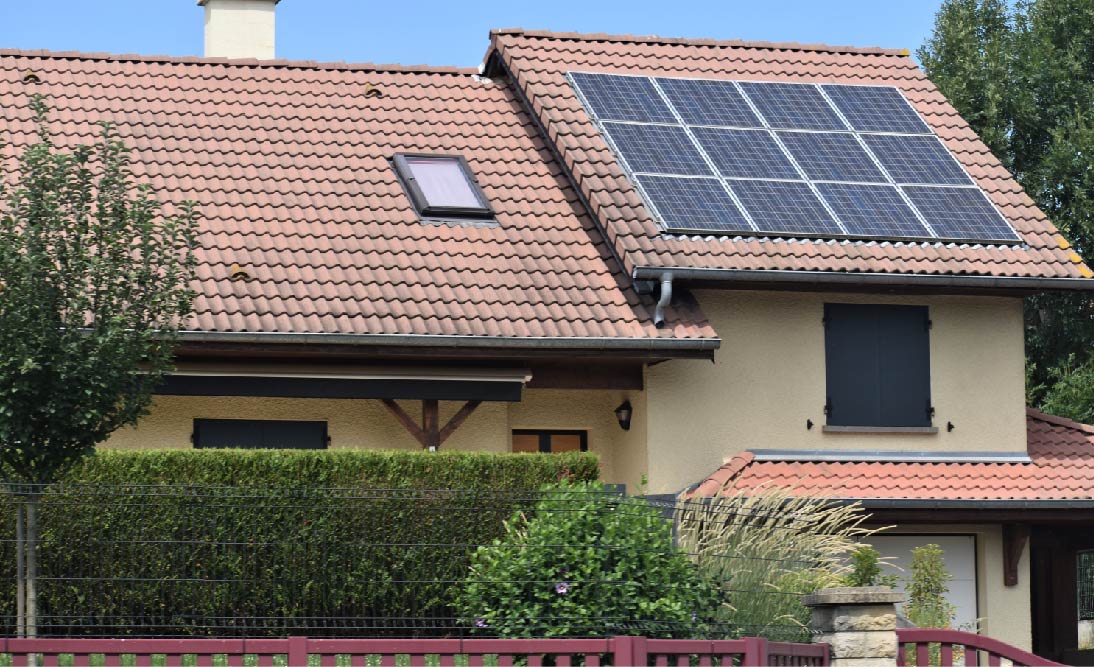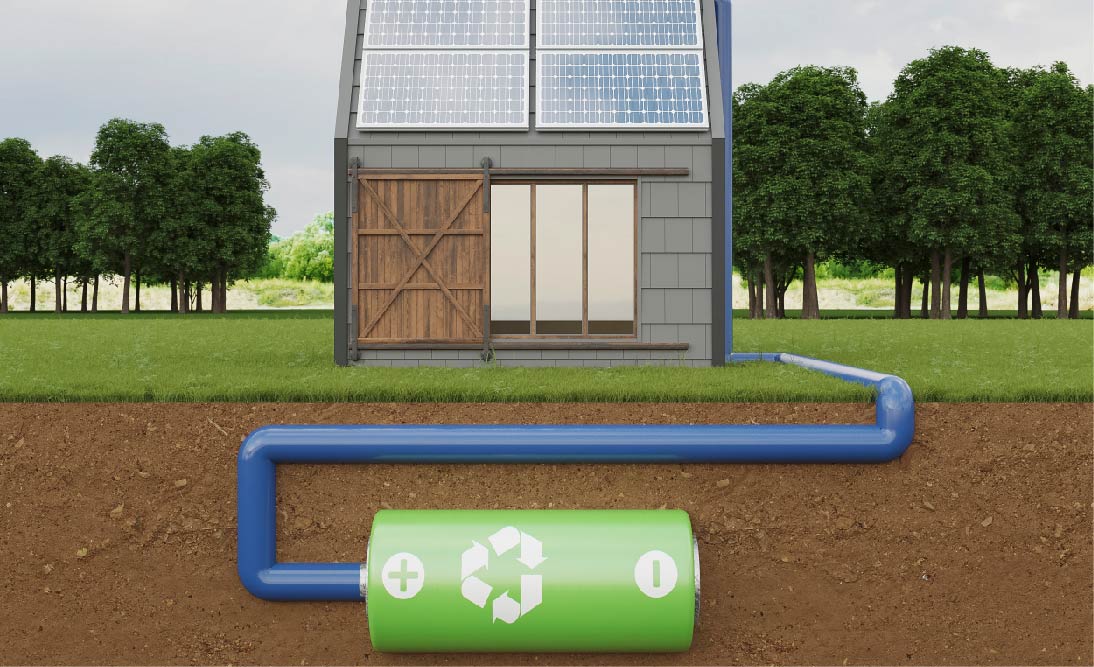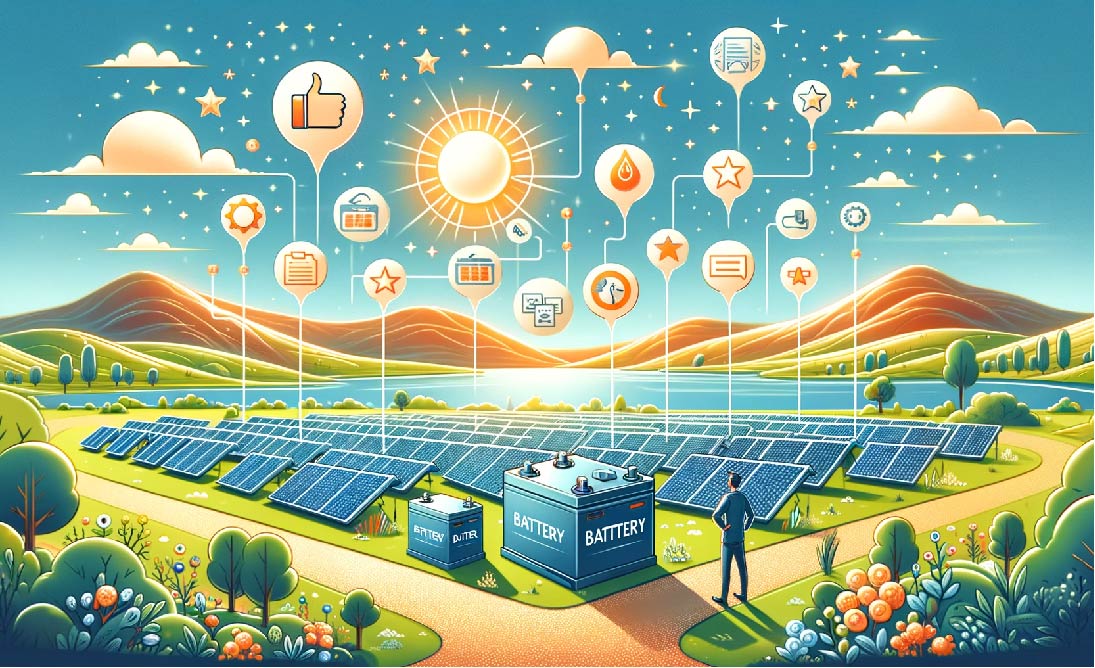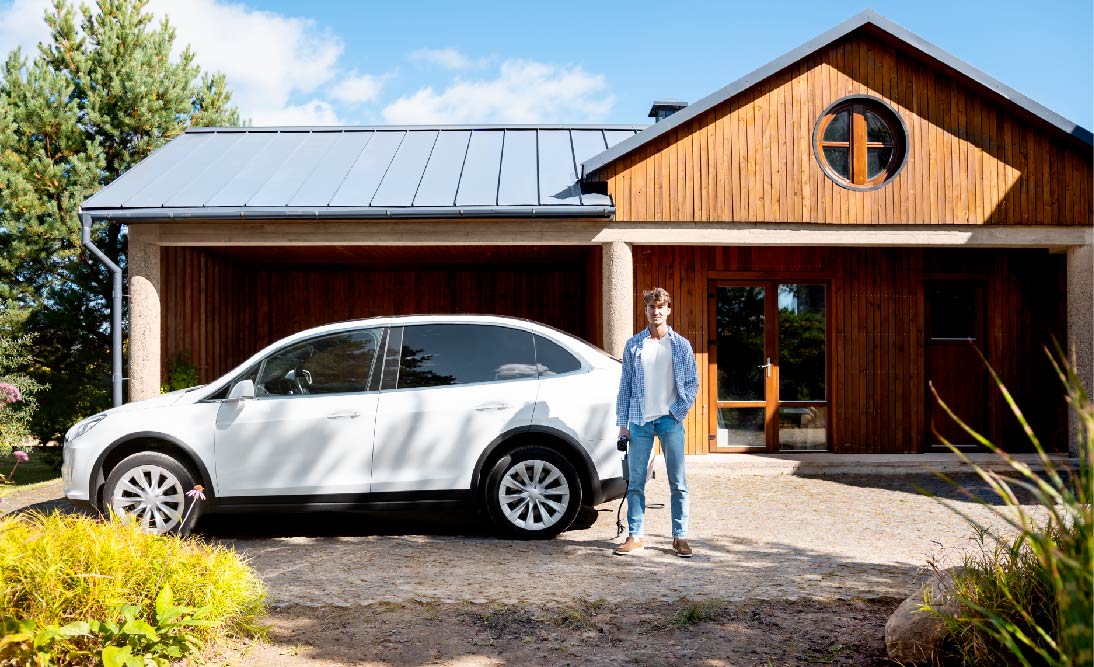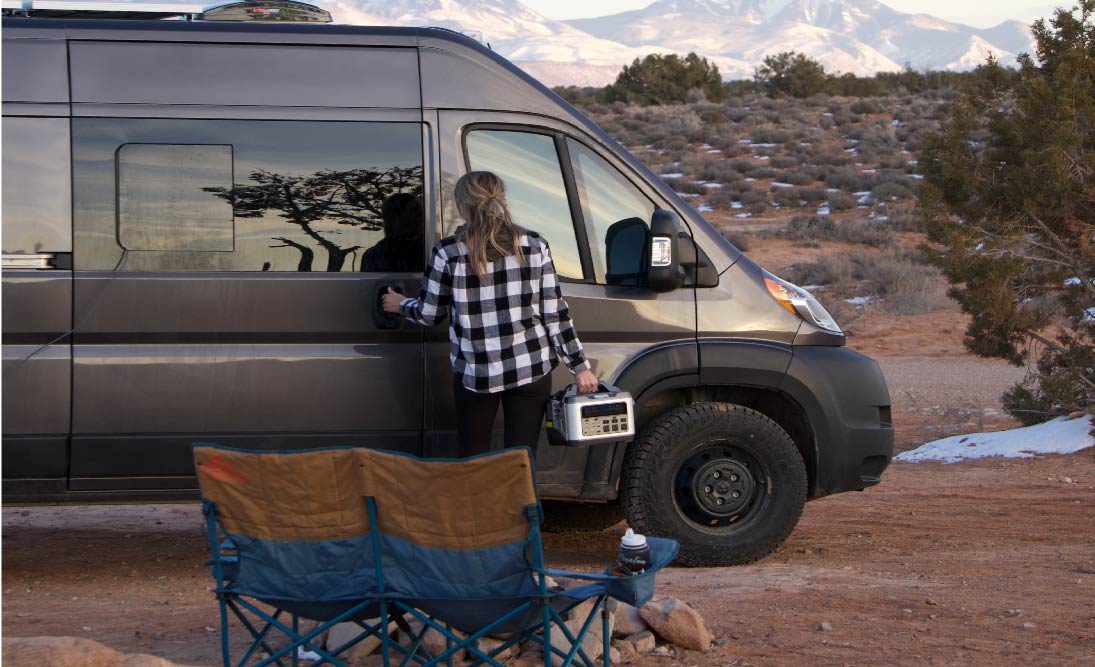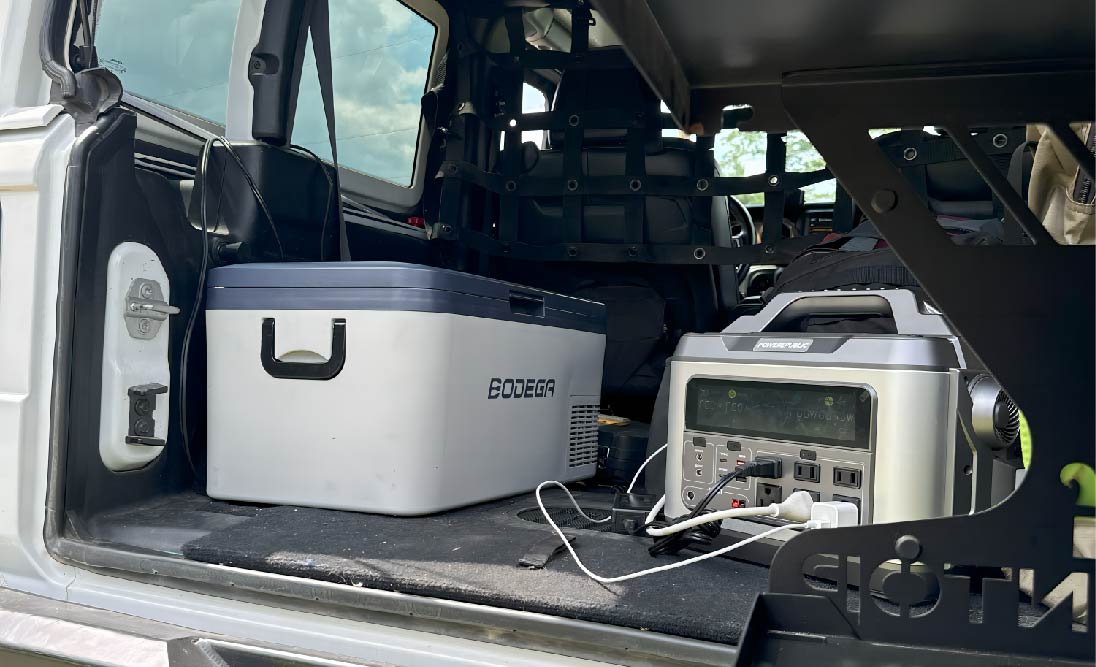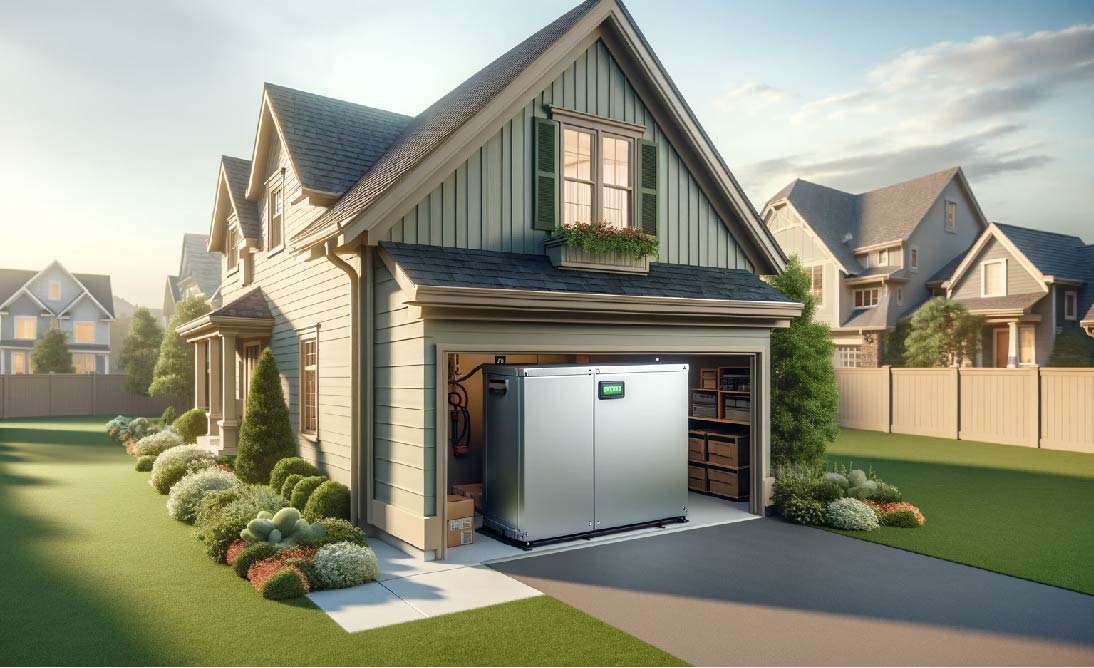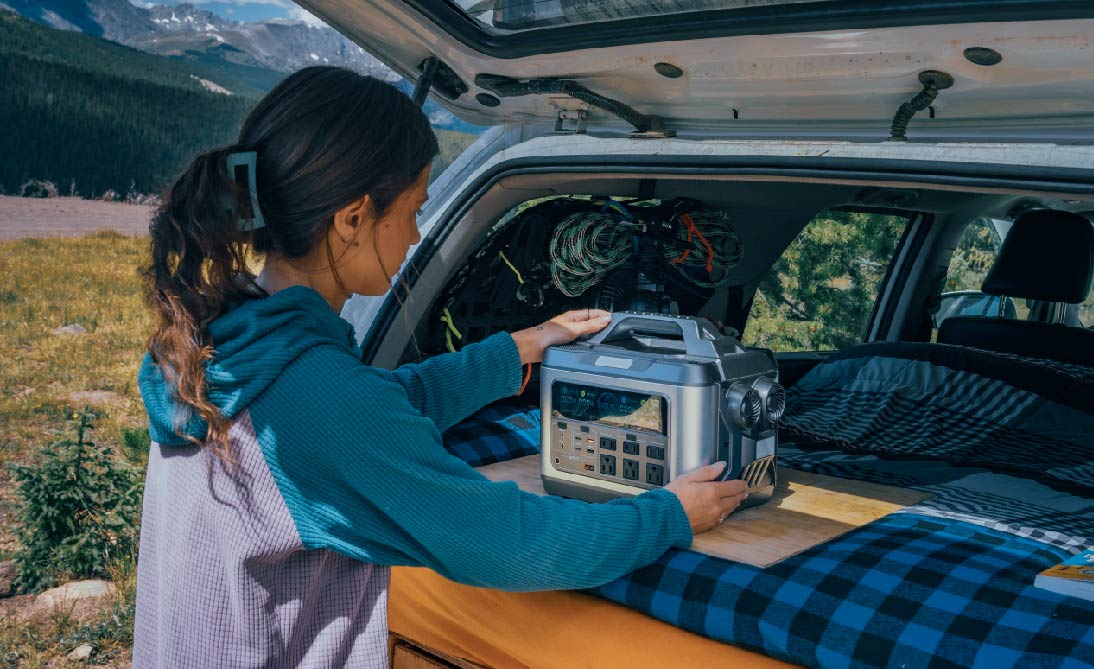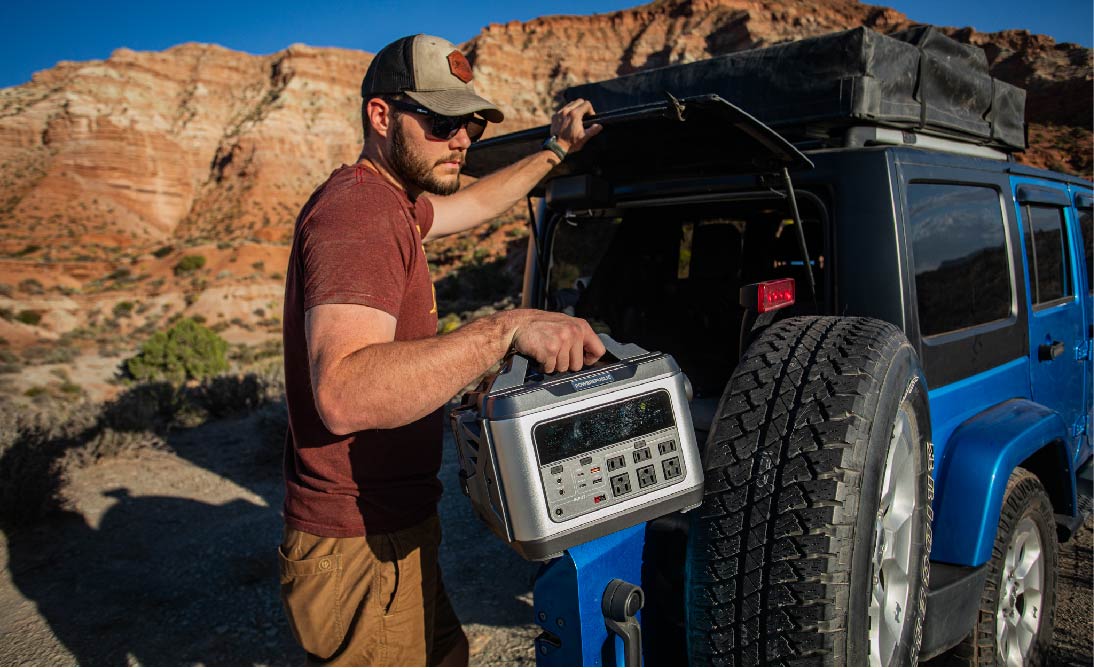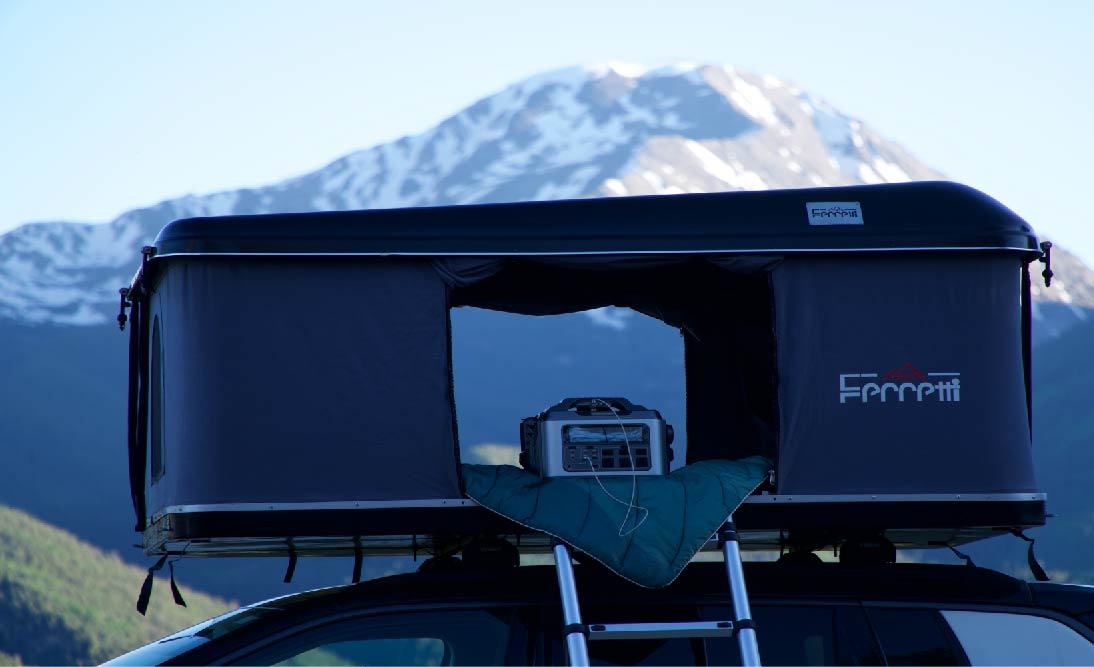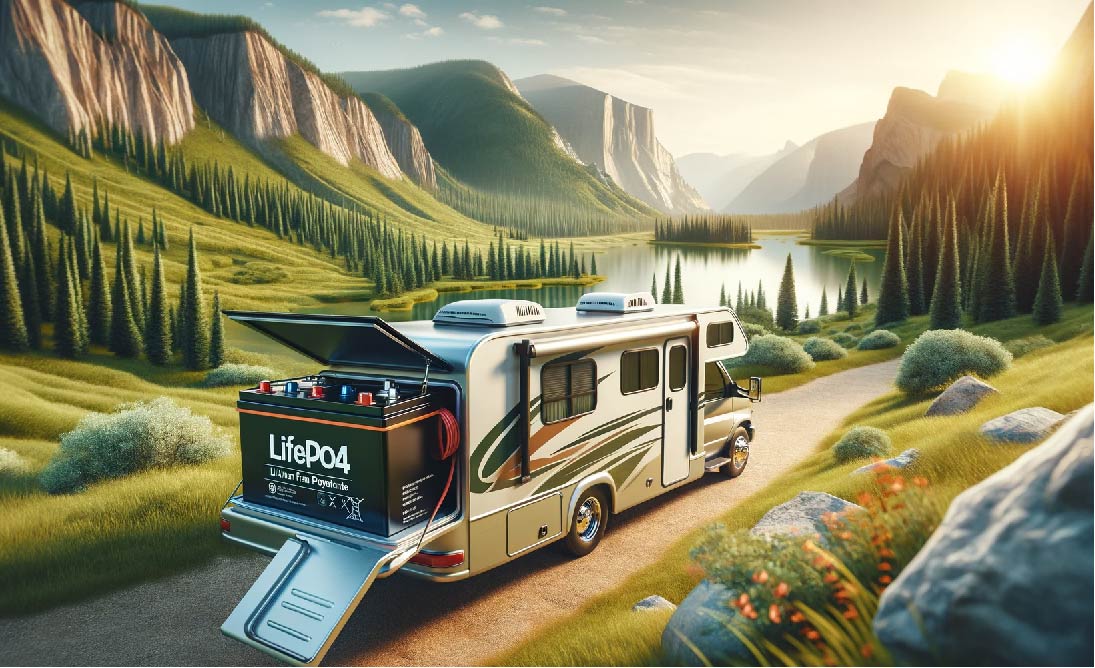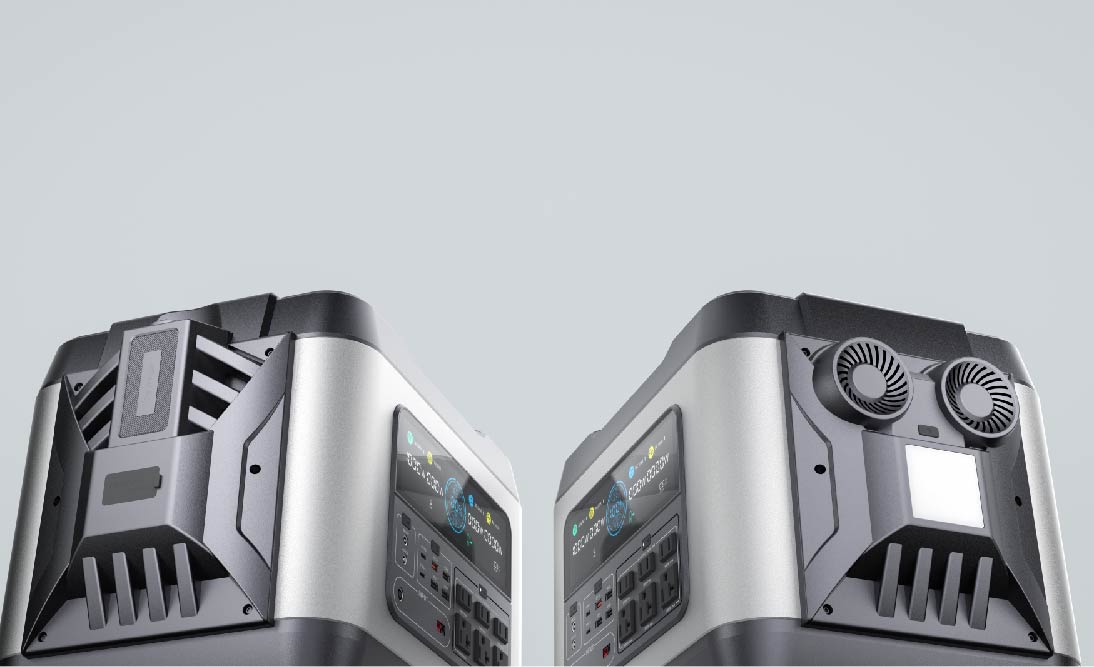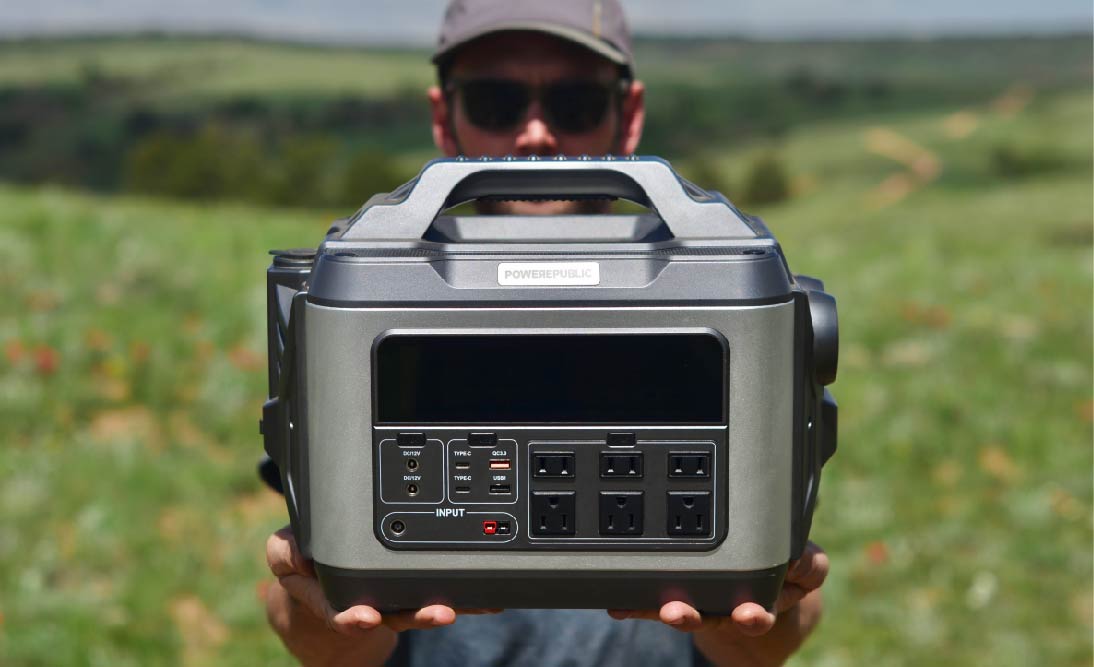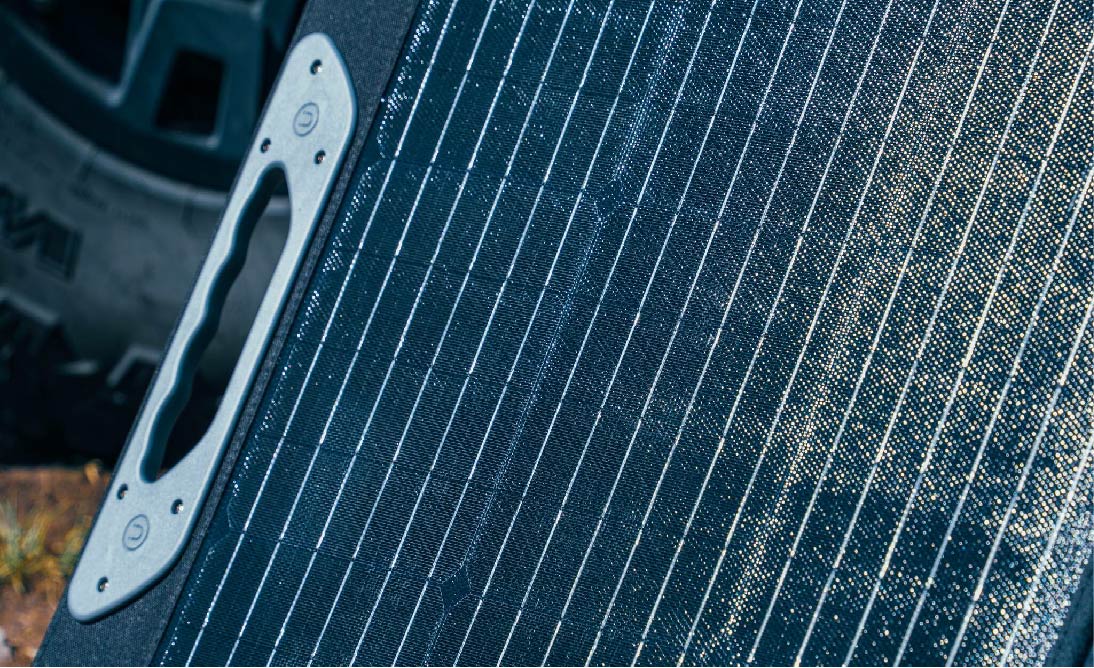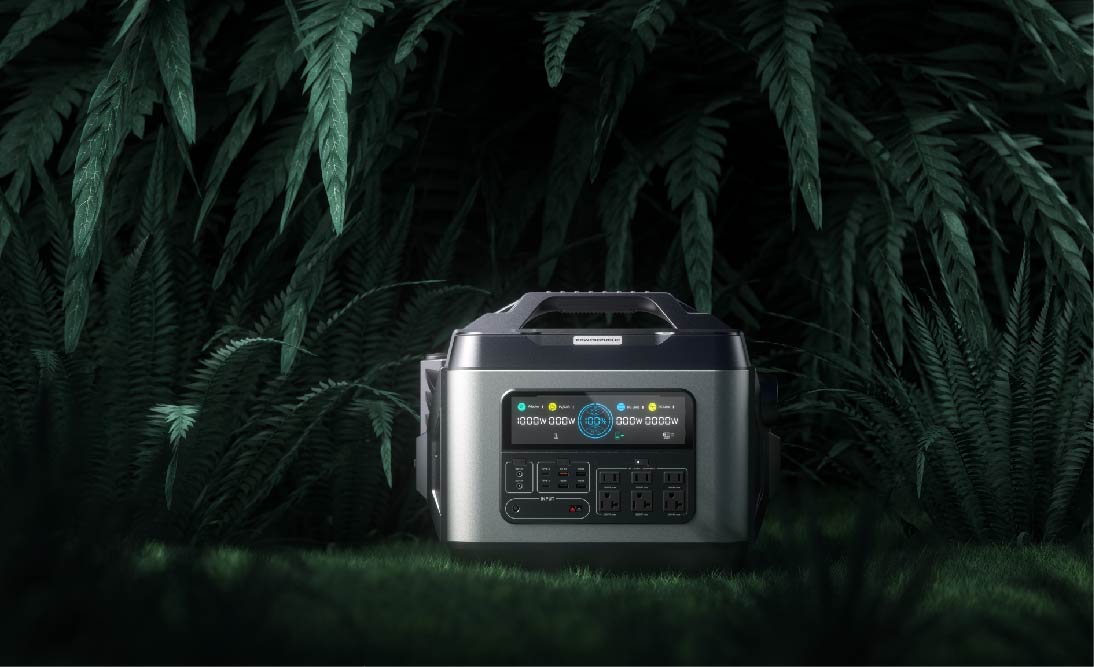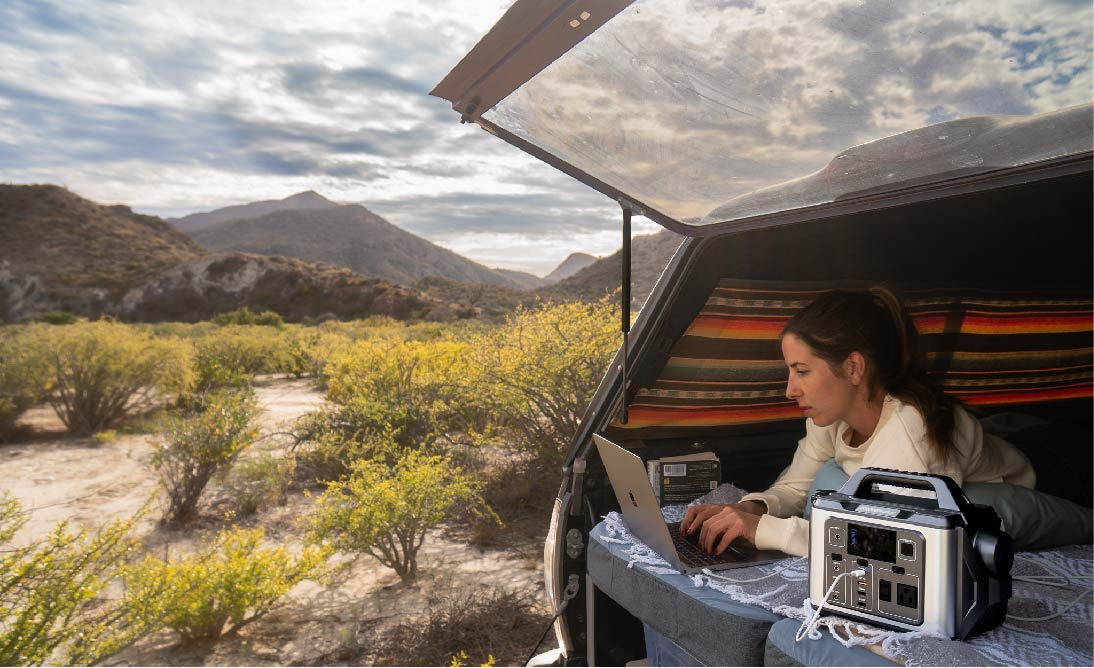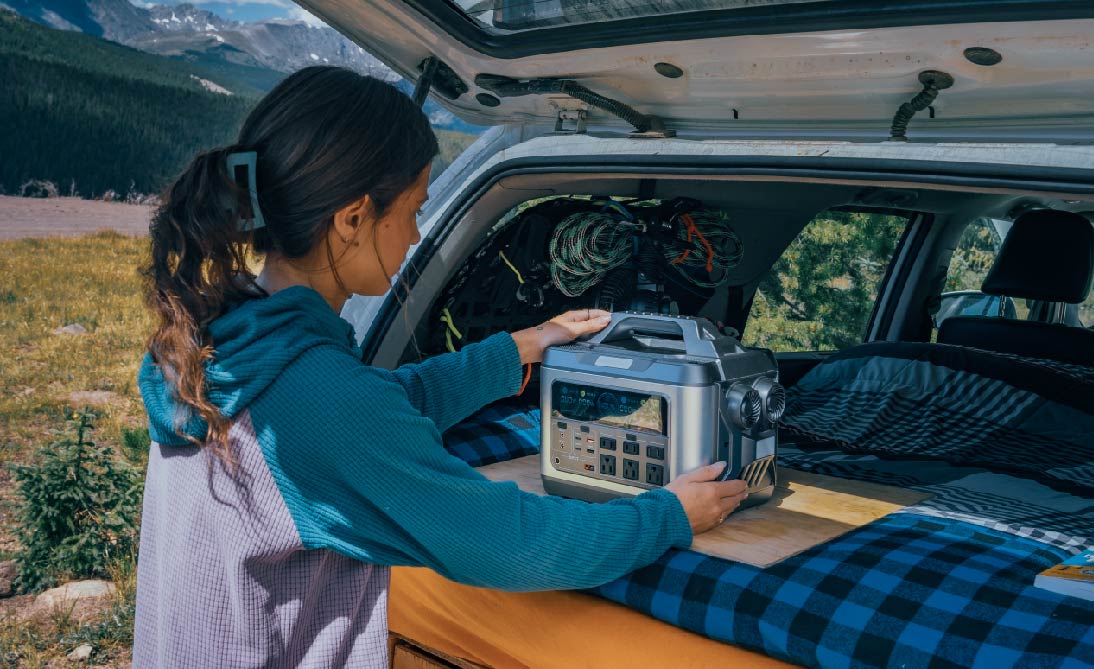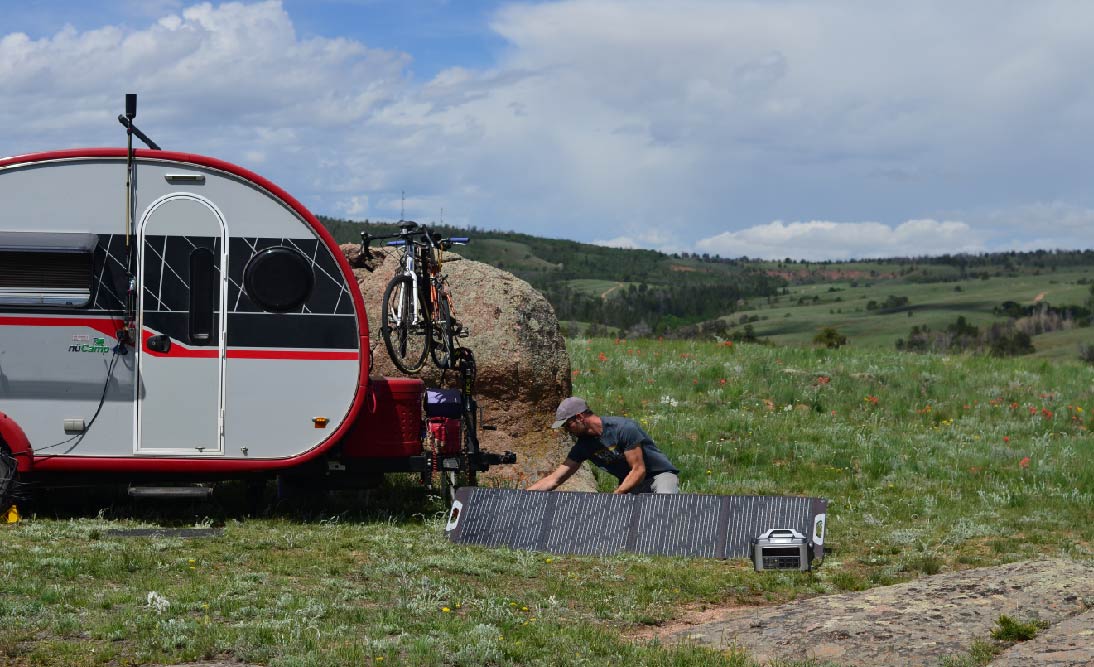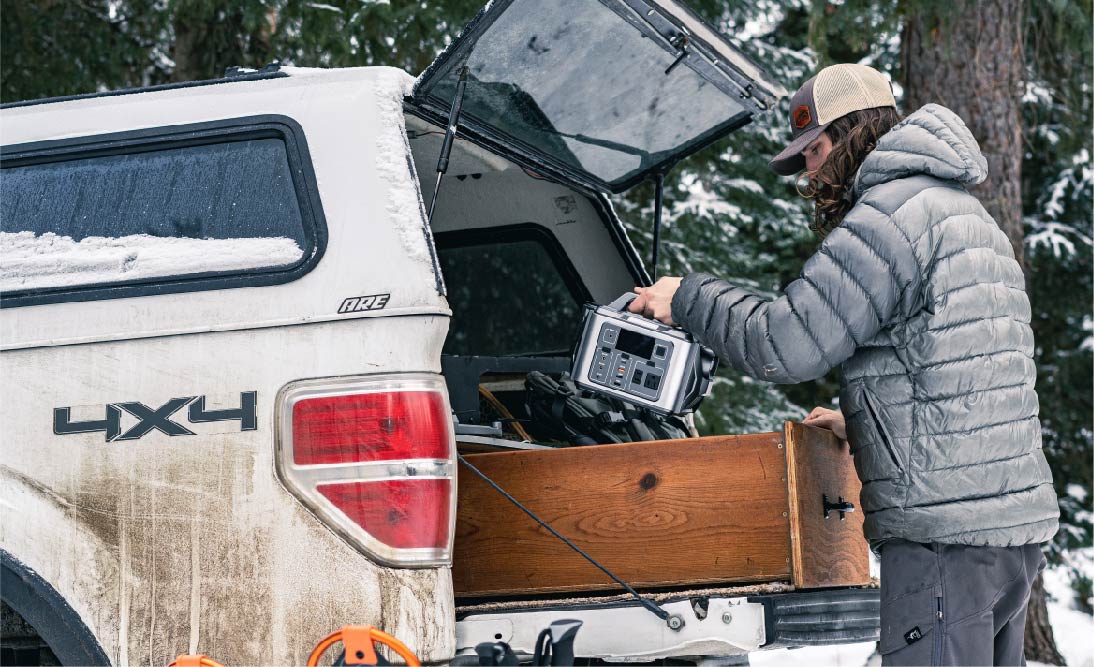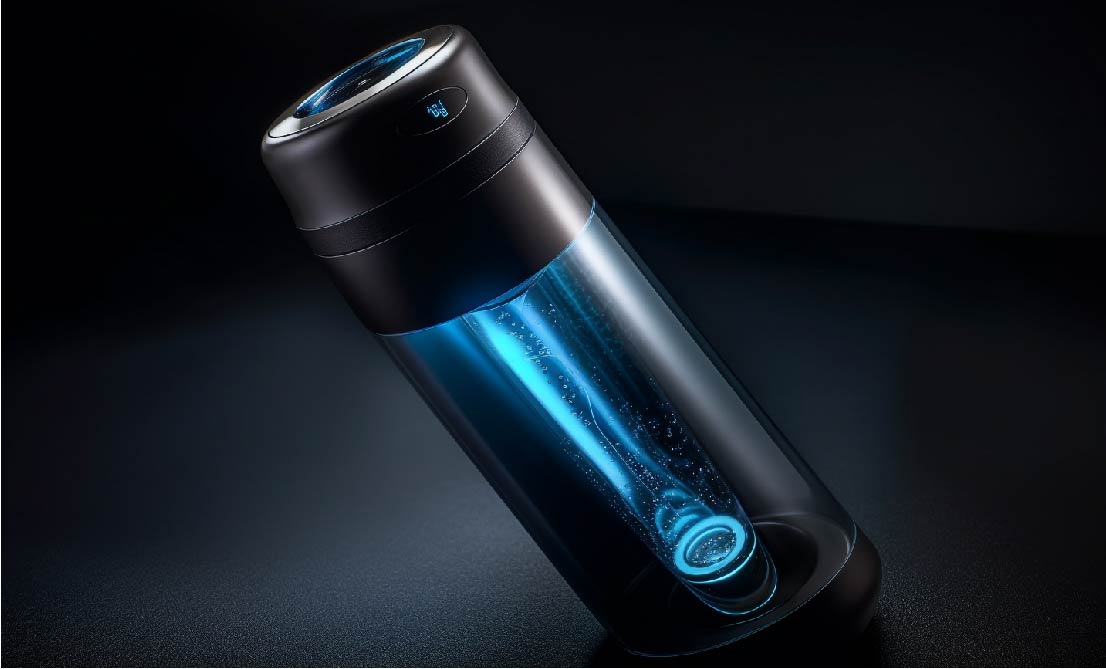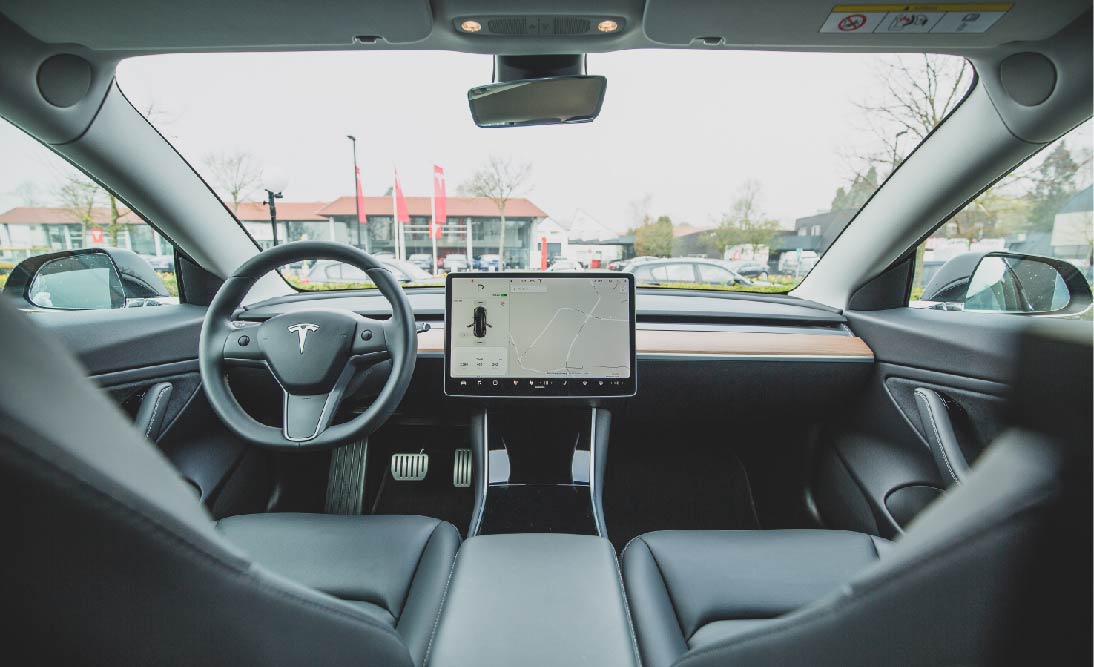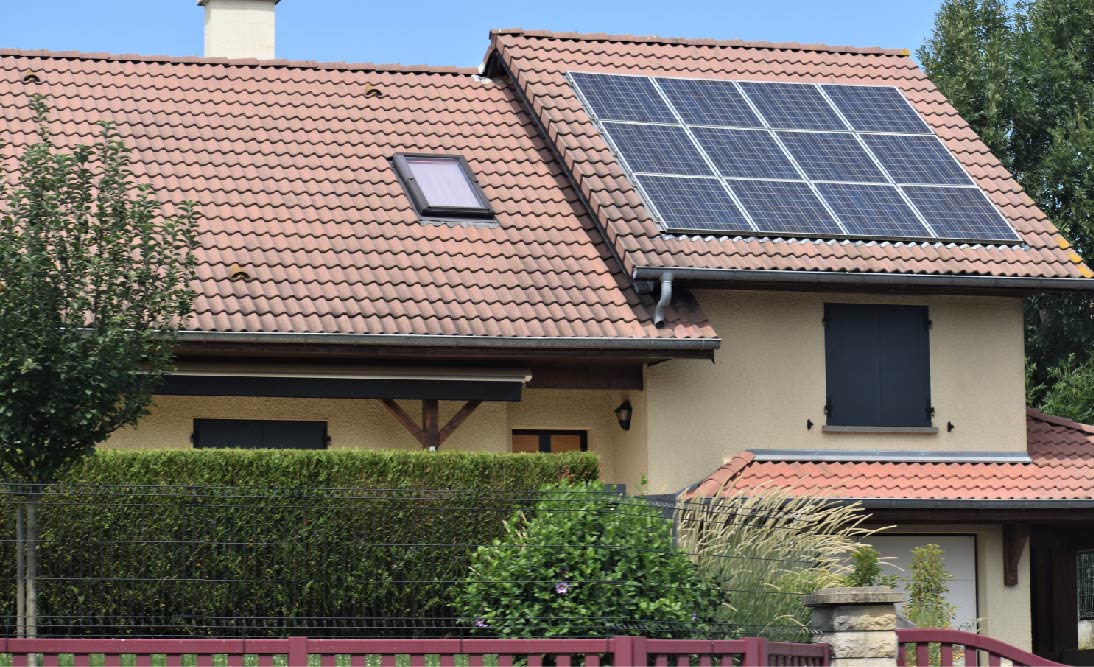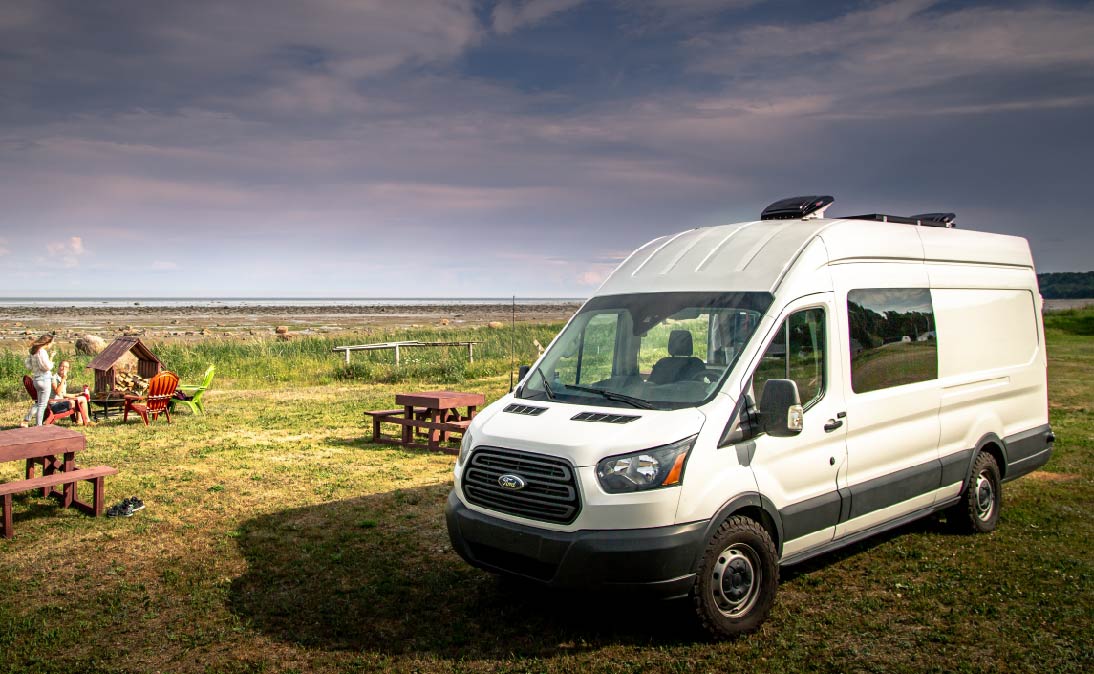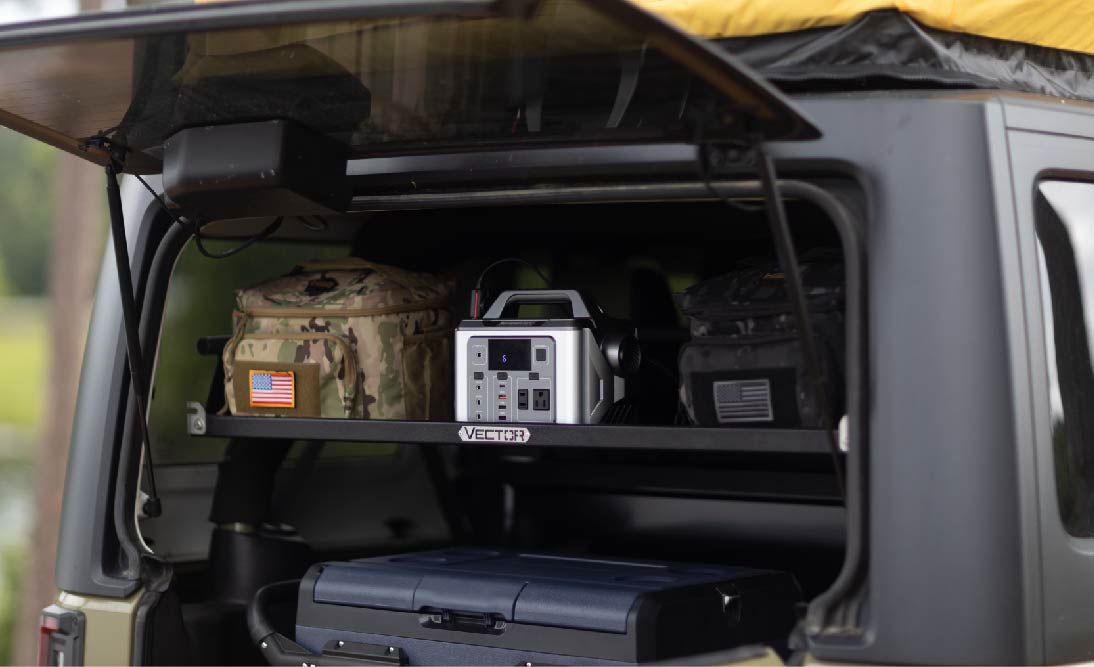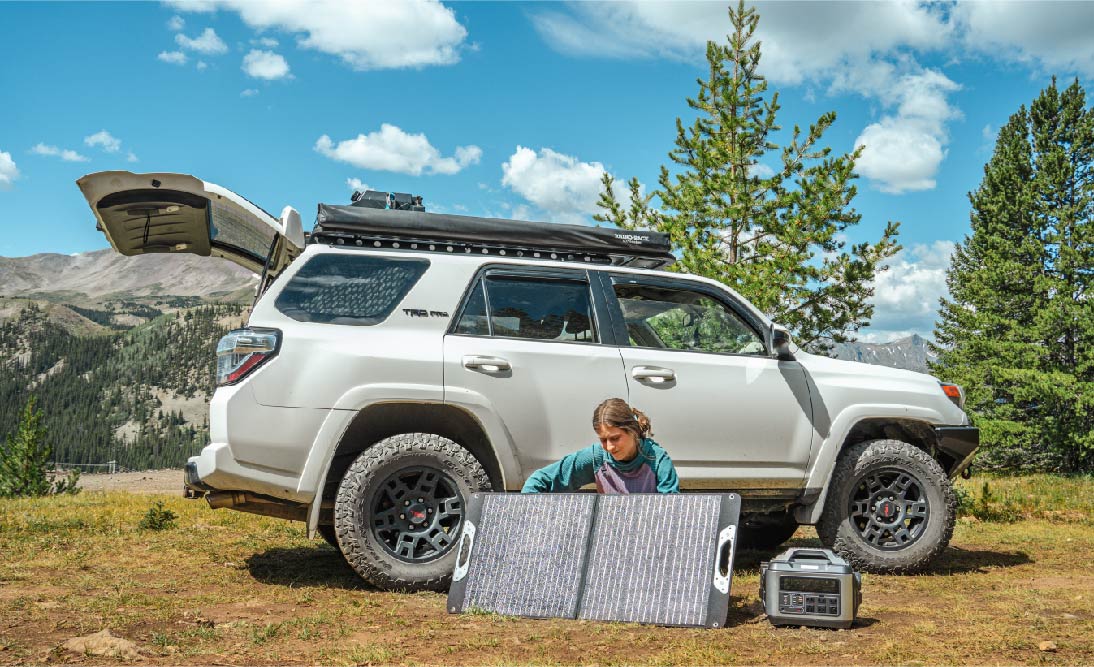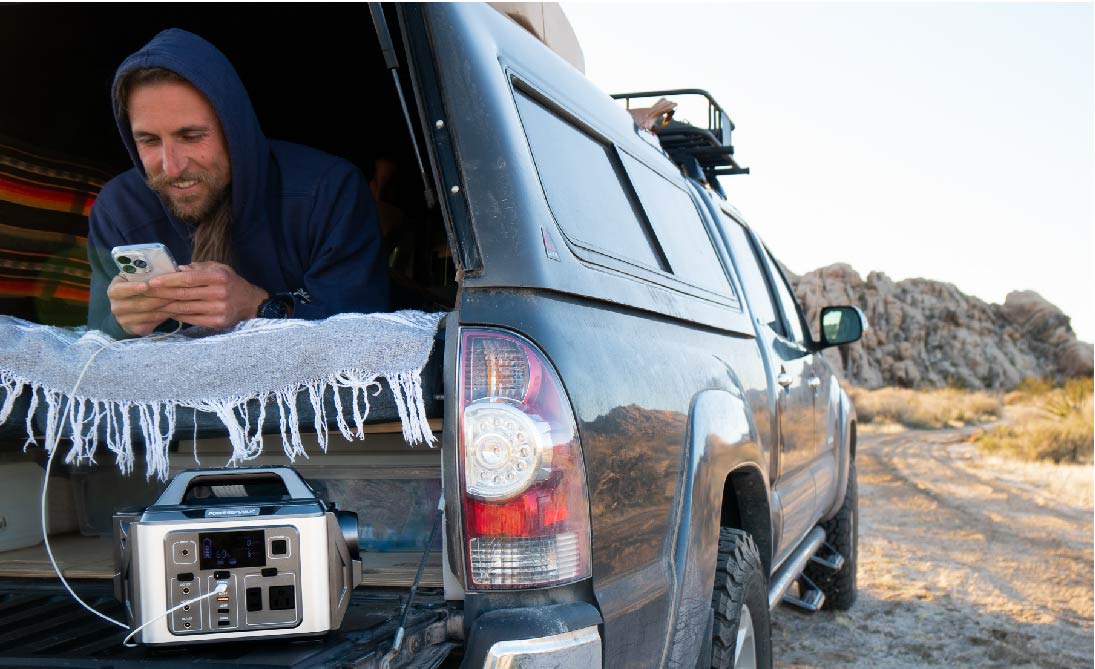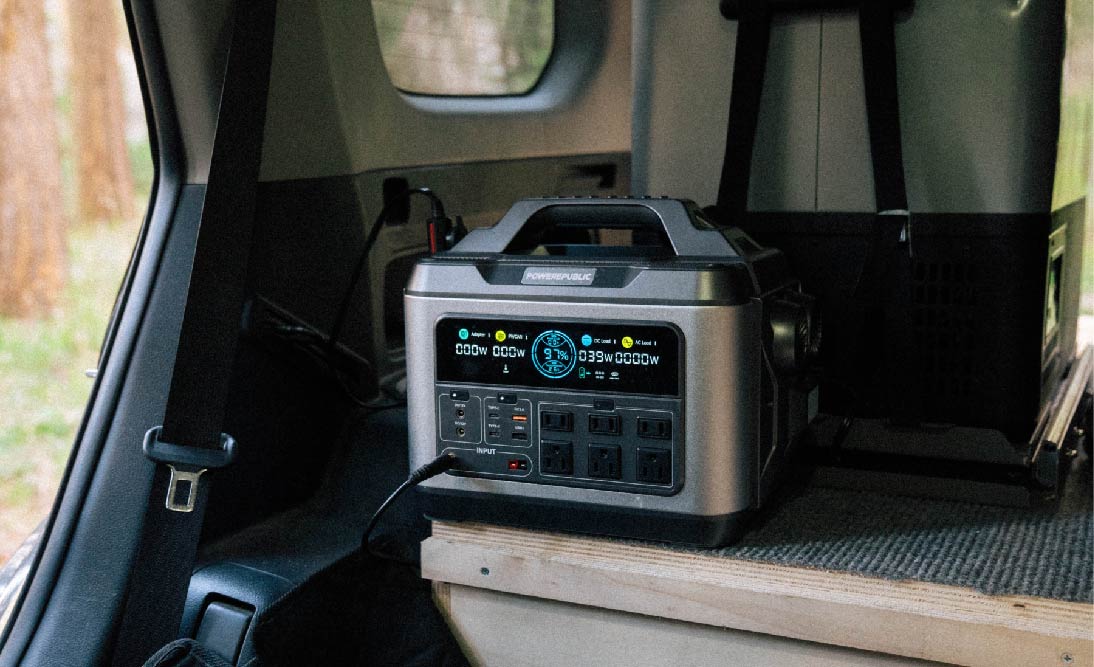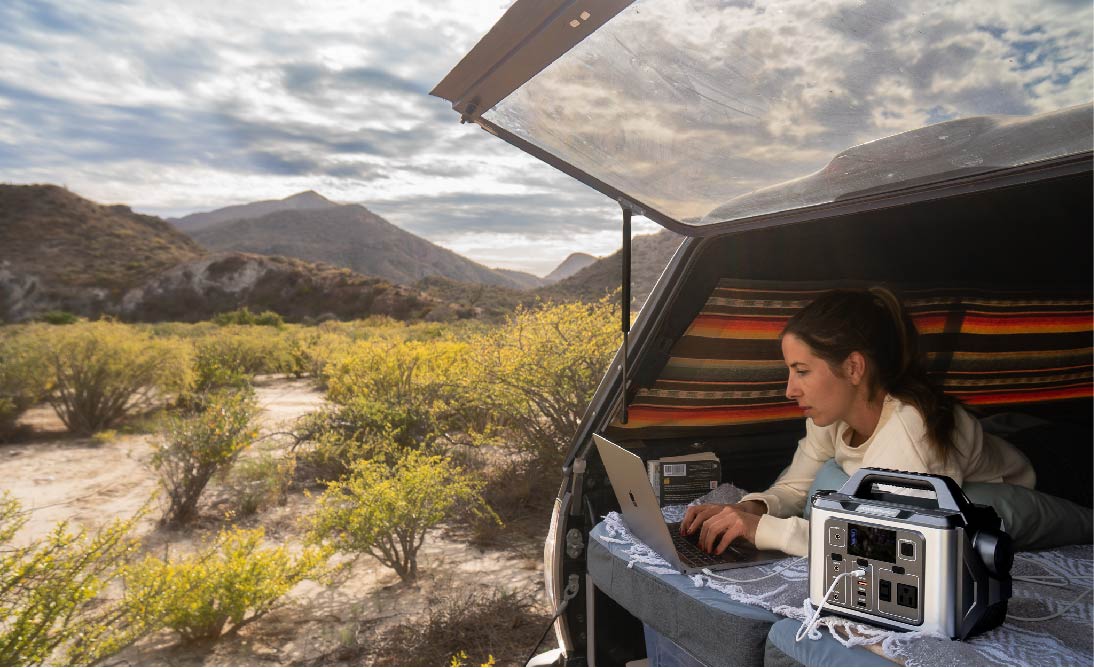Table of Contents:
Living in an RV brings the joy of mobility, but it also means ensuring that all your essential devices and appliances—like the microwave, mini-fridge, and water heater—remain powered up. Most RVs are outfitted with rooftop solar panel systems, a testament to sustainable living. However, these systems face a challenge: reduced efficiency during overcast or snowy weather conditions. This is where the role of additional RV portable solar panels becomes crucial. By integrating these panels with a secondary battery, they act as a reliable backup power source, transforming into an indispensable asset for life on the road.
This comprehensive guide will explore the ins and outs of RV portable solar panels, providing you with essential information and tips. Our goal is to help you stay powered and prepared, regardless of your journey.
What are RV Portable Solar Panels?

RV portable solar panels are designed specifically for use with recreational vehicles (RVs) to provide a renewable source of energy while on the go. These panels are typically compact, lightweight, and designed to be easily transportable, allowing RV owners to generate electricity in remote locations without access to a traditional power grid.
Following are key features and details about RV portable solar panels:
1. Type of Cells Used: Most RV portable solar panels use either monocrystalline or polycrystalline solar cells.
-
Monocrystalline Solar Cells: These are made from a single crystal of silicon, which makes them more efficient in converting sunlight to electricity. They are also more space-efficient but tend to be more expensive.
-
Polycrystalline Solar Cells: These are made from multiple silicon fragments melted together. They are less efficient than monocrystalline cells and slightly bulkier, but they are also more affordable.
2. Portability: RV solar panels are designed to be portable. They often come with features like foldable designs, carrying handles, and lightweight frames for easy transport and storage.
3. Ease of Installation: These solar panels are generally easy to set up and use. Many come with plug-and-play systems, requiring minimal technical knowledge for installation.
4. Power Output: The power output of RV solar panels varies, typically ranging from about 100 watts to 300 watts per panel. This power can be used to charge RV batteries, power appliances, and provide lighting.
5. Durability: Given that they are used outdoors and often in varying weather conditions, RV solar panels are built to be durable and weather-resistant.
6. Additional Components: Besides the solar panels themselves, a complete RV solar power system may include a solar charge controller, battery storage, power inverter, and sometimes a generator as a backup power source.
RV portable solar panels are a popular choice for those who enjoy off-grid camping or traveling, as they offer a way to use renewable energy to meet basic electrical needs without relying on external power sources.
Why Do You Need RV Portable Solar Panels?

RV portable solar panels are a wise investment for anyone who values sustainability, freedom, and convenience in their RV travels. They not only enhance your camping experience by providing a reliable, quiet, and eco-friendly power source but also add value and autonomy to your RV lifestyle.
Below are some common reasons why it is beneficial to have RV portable solar panels:
-
Eco-Friendly Power Source: RV portable solar panels offer a sustainable and clean energy source. They harness the power of the sun, reducing reliance on fossil fuels and minimizing your carbon footprint. This is particularly important for eco-conscious travelers who want to enjoy the great outdoors without harming the environment.
-
Energy Independence: With RV solar panels, you gain a significant degree of energy independence. You're not tied to RV parks or campgrounds with electrical hookups. This freedom allows you to explore more remote locations while still having access to power.
-
Cost-Effective: Although there's an upfront investment in purchasing and setting up solar panels, they can save you money in the long run. By generating your electricity, you reduce or even eliminate the need to pay for hookups at campgrounds, and you avoid the ongoing costs associated with running a generator.
-
Low Maintenance: RV solar panels require minimal maintenance. Once installed, they can provide a reliable power source with little need for ongoing upkeep, unlike generators that require regular maintenance and fuel and can be costly to repair.
-
Quiet Operation: Generators can be noisy, which might disturb the peace of the natural settings you're exploring. Solar panels operate silently, helping you maintain the tranquility of your camping experience.
-
Convenience: Modern RV solar panels are designed for ease of use. They're often portable, easy to set up, and can be operated with little technical know-how. This convenience is a big plus, especially for those who prefer straightforward, hassle-free equipment.
-
Extended Off-Grid Capability: For longer trips away from conventional power sources, solar panels can be invaluable. They allow you to extend your off-grid adventures, ensuring that your RV’s batteries remain charged and your appliances keep running.
-
Increases RV Value: Installing solar panels can increase the value of your RV. It's an attractive feature for potential buyers, should you decide to sell your RV in the future, as it adds a level of modernity and self-sufficiency.
-
Backup Power Source: Even if you generally camp in areas with electrical hookups, solar panels can serve as a backup power source. They provide peace of mind, knowing you have an alternative power supply in case of outages or emergencies.
Limitation of RV Portable Solar Panels

While RV portable solar panels offer numerous benefits, they also come with certain limitations that are important to consider:
-
Weather Dependent: The most significant limitation of solar panels is their dependence on weather conditions. Their efficiency drastically reduces on cloudy, rainy, or snowy days. This can be particularly challenging in regions or seasons with limited sunlight.
-
Initial Cost: The upfront cost of purchasing and installing solar panels can be substantial. High-quality solar systems, which include panels, batteries, charge controllers, and inverters, require a significant investment, which might not be feasible for all RV enthusiasts.
-
Space Constraints: RVs have limited roof space, which restricts the number and size of solar panels that can be installed. This limitation can impact the total amount of solar energy that can be harnessed, especially for larger RVs with higher power demands.
-
Energy Storage Limitations: Solar panels generate power only when the sun is shining. Without a sufficient battery storage system, you can’t store enough energy for use during nighttime or cloudy days. The capacity of batteries and the additional space they require can be a constraint.
-
Lower Efficiency in Non-Ideal Conditions: Solar panels operate at peak efficiency under ideal conditions. Any deviation - like partial shading, dust, or high temperatures - can significantly reduce their efficiency.
-
Maintenance and Durability: While generally low maintenance, solar panels can be damaged by harsh weather conditions like hail or heavy snow. They also require regular cleaning to maintain efficiency, which can be challenging when on the road.
-
Technical Complexity: Setting up a solar system involves understanding electrical systems, which might be daunting for some RV owners. Incorrect installation can lead to reduced efficiency or even damage to the RV’s electrical system.
-
Power Limitation: Even the best solar setup may not generate enough power for all your needs, especially for high-energy appliances like air conditioners, microwaves, or large refrigerators. This limitation may require you to prioritize which appliances and devices you use.
-
Slower Charging: Solar panels generally charge batteries slower than a shore power connection. This slow charging rate can be an issue, especially if you have limited time to recharge your batteries.
Overall, while RV portable solar panels are an excellent source of clean and renewable energy, they do have limitations related to weather dependency, initial costs, space and efficiency constraints, maintenance needs, and technical complexities. Potential users need to weigh these factors against their specific needs and capabilities before investing in a solar setup for their RV.
How To Choose The Ideal RV Portable Solar Panels?

Choosing the ideal RV portable solar panels involves careful consideration of your specific needs, your RV's capabilities, and the environment you'll be traveling in. Here's a detailed guide on how to select the right solar panels, complete with examples and calculations:
1. Assess Your Power Needs
-
Calculate Daily Energy Consumption: List all the devices and appliances you use (e.g., lights, fridge, TV, microwave) and their wattage. Estimate how many hours per day you use each.
-
Example: Fridge: 150W for 24 hours = 150W * 24h = 3600 Wh/day, Lights: 10W for 5 hours = 10W * 5h = 50 Wh/day, and TV: 100W for 2 hours = 100W * 2h = 200 Wh/day
-
Total Daily Consumption: 3600 Wh + 50 Wh + 200 Wh = 3850 Wh/day
2. Understand Solar Panel Specifications
-
Type of Solar Panels: Monocrystalline panels are more efficient but costlier; polycrystalline are affordable but less efficient.
-
Power Output: Panels are rated in watts. Higher-wattage panels produce more electricity but are larger.
-
Efficiency: This indicates how well a panel converts sunlight into electricity. Higher efficiency is better, especially in limited space.
3. Calculate Required Solar Panel Output
-
Consider Sunlight Hours: Estimate the average peak sunlight hours in your travel areas.
-
Example: If you expect 5 hours of sunlight per day:
-
Total Panel Output Needed: Divide total consumption by sunlight hours. Required Output = 3850 Wh/day ÷ 5 hours = 770 W
-
Selecting Panels: If you choose 100W panels, you'll need about 8 panels (770W ÷ 100W/panel).
4. Consider Panel Size and Weight
-
Space Constraints: Measure available roof space. Ensure panels will fit.
-
Weight: Check your RV’s roof weight capacity. Larger panels are heavier.
5. Evaluate Additional Components
-
Charge Controller: Protects batteries from overcharging. MPPT controllers are more efficient than PWM.
-
Battery Capacity: Ensure you have enough battery storage to hold the energy. Consider Lithium batteries for longer life and lighter weight.
-
Inverter Size: To convert DC from panels to AC for appliances. Ensure it matches your total usage.
6. Factor in Weather and Location Variability
-
Adjust for Less Sunlight: In areas with less sunlight, you might need more panels.
-
Tilting Mechanism: Allows adjusting panel angle for optimal sunlight exposure.
7. Maintenance and Durability
-
Choose panels with durable construction and a good warranty.
-
Plan for regular cleaning and maintenance.
8. Budget Considerations
-
Higher efficiency panels are costlier but may be worth the investment.
-
Balance initial costs with long-term benefits and savings.
9. Brand and Warranty
-
Choose reputable brands with good customer support.
-
Look for panels with warranties of 20-25 years.
10. Example Scenario
-
RV Owner: Wants to power a fridge, lights, and occasional TV use.
-
Total Power Need: Approximately 3850 Wh/day.
-
Sunlight Hours: 5 hours/day.
-
Required Panel Output: At least 770W.
-
Selection: 8 x 100W monocrystalline panels.
-
Additional Components: MPPT charge controller, 400Ah Lithium battery, 1000W inverter.
So selecting the right RV portable solar panels is a balance of understanding your energy needs, the capabilities of your RV, the conditions you'll be traveling in, and your budget. By carefully calculating your needs and considering the factors above, you can ensure a sustainable and convenient power source for your RV travels.
POWEREPUBLIC RV Portable Solar Panels
From the information above, we understand that selecting the ideal RV portable solar panels for your needs is not a simple task. However, not every RVer needs a large number of solar panels, as many RVs already have their built-in solar systems to keep the entire vehicle running.
If you have a portable power station or a secondary battery, and only need to power some devices and appliances during extreme weather or in emergencies, a few RV portable solar panels may suffice. In this scenario, we suggest considering the POWEREPUBLIC 100W and 200W portable solar panels, as they are great options for backup power solutions.
POWEREPUBLIC 100W RV Portable Solar Panels

Compatible with all POWEREPUBLIC portable power stations, our PV100 is ideal for campers, RVers, and van lifers who value portability and space. Weighing only 7.7 lbs (3.5 kg) and with a folded dimension of 23.2 x 20.5 x 1.2 inches, it's easy to carry anywhere you go and can be conveniently stored in your vehicle. The PV100 uses monocrystalline cells with an efficiency of up to 22% to maximize sunlight absorption. Its durable ETFE surface makes it weather-resistant.
Furthermore, it features several USB and Type-C ports on the back, ensuring you can charge your essential devices as needed. The MC4 connectors allow for the connection of multiple PV100 panels together, creating a larger and higher solar input, within the solar input requirements of the portable power station or the secondary battery.
POWEREPUBLIC 200W RV Portable Solar Panels

Compatible with POWEREPUBLIC T1200, T2200, and T3000 portable power stations, our PV200 is ideal for campers, RVers, and van lifers who are looking for a higher solar input. Weighing 17.6 lbs (8 kg) and with folded dimensions of 24.8 x 20.5 x 2 inches, it's easy to carry anywhere you go and can be conveniently stored in your vehicle. The PV200 uses monocrystalline cells with an efficiency of up to 22% to maximize sunlight absorption. Its durable ETFE surface makes it weather-resistant. The main difference between our PV100 and PV200 is that the PV200 has double the solar input and a larger unfolded dimension compared to the PV100, offering you a choice between portability and functionality.
Furthermore, it features several USB and Type-C ports on the back, ensuring you can charge your essential devices as needed. The MC4 connectors allow for the connection of multiple PV200 panels together, creating a larger and higher solar input, within the solar input requirements of the portable power station or the secondary battery.
FAQ I: How To Take Care of RV Portable Solar Panels?

Taking care of your RV portable solar panels is crucial for maintaining their efficiency and prolonging their lifespan. Following are some key tips:
-
Regular Cleaning: Dust, dirt, and bird droppings can significantly reduce the efficiency of solar panels. Clean the panels regularly with sponges or clothes and mild detergent. Avoid using abrasive materials that might scratch the surface.
-
Check for Obstructions: Ensure that the panels are free from shade and obstructions like overhanging branches, as these can impact their performance.
-
Inspect for Damage: Regularly inspect your solar panels for any cracks, scratches, or other damages. Even small defects can affect the overall efficiency of the system.
-
Proper Wiring: Ensure that all wiring is secure and insulated. Loose or exposed wiring can lead to malfunctions or short circuits.
-
Avoid Harsh Chemicals: When cleaning, avoid harsh cleaning chemicals that could damage the solar panel surface.
-
Proper Storage: When your RV portable solar panels are not being used, ensure they are kept in a secure and dry location. Refrain from putting weighty items on the panels to avert potential physical harm.
-
Monitor Performance: Keep an eye on the performance of your solar panels. A sudden drop in efficiency could indicate a problem that needs attention.
-
Professional Check-Up: Consider having a professional periodically check your solar panels to ensure they are functioning optimally.
-
Handle with Care: When moving or setting up your panels, handle them with care to avoid accidental drops or impacts.
-
Follow Manufacturer Guidelines: Always follow the care and maintenance instructions provided by the manufacturer for the best results.
FAQ II: Are Solar Panels Water Resistant?

Yes, most RV portable solar panels are designed to be water-resistant, making them suitable for outdoor use in various weather conditions. Here are some points to consider:
-
Weatherproof Design: Solar panels for RVs typically have a weatherproof design to withstand rain and moisture. This includes sealed junction boxes and waterproof coating.
-
ETFE Surface: Many high-quality RV solar panels have an ETFE (Ethylene Tetrafluoroethylene) surface, which provides excellent water and weather resistance.
-
IP Ratings: Look for solar panels with a high IP (Ingress Protection) rating. An IP rating of IP65 or higher indicates strong water resistance.
-
Limitations: While water-resistant, solar panels are not completely waterproof. Prolonged exposure to standing water or submersion should be avoided.
-
Maintenance After Exposure: After exposure to rain, it’s a good idea to wipe down your panels to remove any dirt or residue and check for any water ingress in the connectors or junction box.
-
Precautions During Installation: Ensure proper sealing and waterproofing during installation, especially around cable entry points.
While RV portable solar panels are generally designed to resist water, it’s important to follow manufacturer guidelines and take appropriate maintenance steps to ensure their longevity and efficiency.
Final Thoughts
In conclusion, RV portable solar panels offer a sustainable and convenient way to power your recreational vehicle. Whether you choose the compact POWEREPUBLIC 100W or the more robust 200W model, these panels provide a reliable source of clean energy, ensuring your essential devices and appliances stay powered in various conditions. The flexibility and efficiency of these panels, combined with their ease of use and portability, make them an excellent investment for any RVer. By embracing RV portable solar panels, you not only contribute to a greener environment but also enjoy the freedom and independence that come with off-grid living. This guide aims to help you navigate the various aspects of selecting and maintaining your solar panels, enhancing your RV experience with a touch of modernity and self-sufficiency.
Remember, the right solar panel setup can significantly elevate your RV lifestyle, making every journey more enjoyable and eco-friendly.
